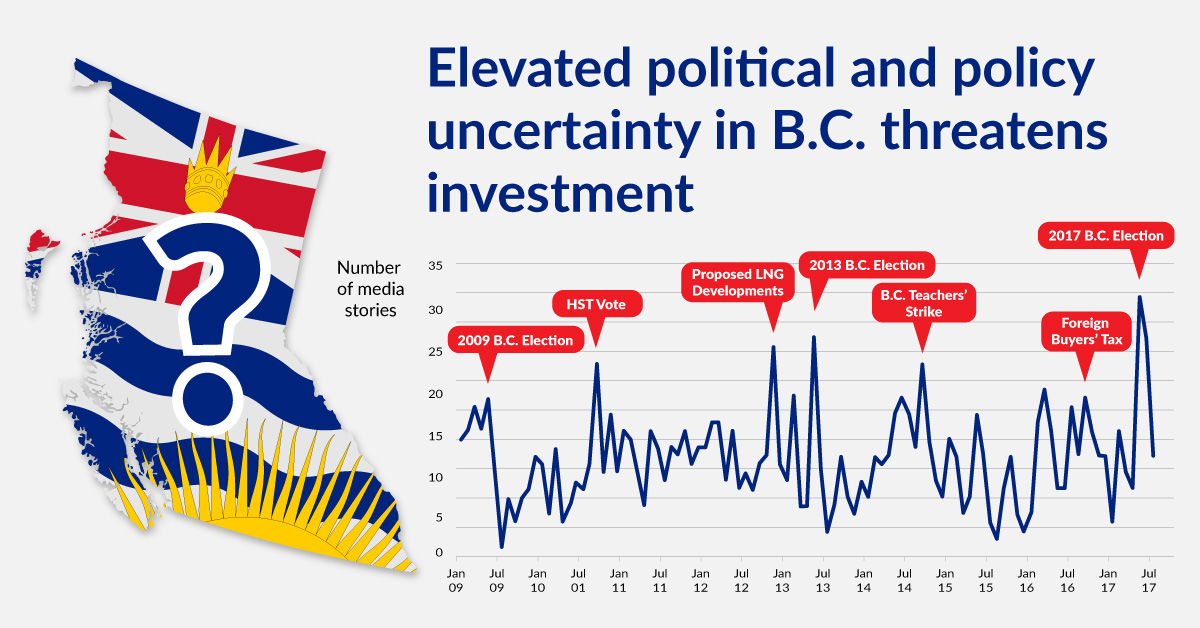Study
| EST. READ TIME 2 MIN.Political and policy uncertainty in B.C. threatens investment and economic prosperity
Measuring the Impact of the 2017 Election on Uncertainty in British Columbia
Summary
- Political uncertainty and policy uncertainty are linked and amplified under minority governments. Uncertainty in both spheres leads to lowered business investment and acts as a drag on the economy.
- This bulletin uses a proxy measure of newspaper coverage of the terms “uncertain” and “British Columbia” from 2009-2017 to show which events and policies increase uncertainty.
- The British Columbia measure shows that provincial elections have brought with them varying levels of political uncertainty, which were heightened in 2013 when there were concerns that the Liberal government might not win a fourth mandate, and in the most recent election held in May 2017, which resulted in no clear majority winner.
- The 2017 election saw proportionately the highest number of stories that include the word “uncertain.” After previous elections, the uncertainty measure dropped dramatically and immediately, but that did not happen after the 2017 election.
- The 2017 election stories focus on both the uncertainty of who will govern and about the policy uncertainty created by the alliance of the NDP and Green parties.
- The policies most likely to be associated with uncertainty after the election were connected to energy and pipeline policy, taxation, and the economy.
- If the government proceeds with its commitment to electoral reform, British Columbia could face more coalition governments, which would lead to persistent political uncertainty and more policy uncertainty.

Share
-

Lydia Miljan
Professor of Political Science, University of Windsor
Lydia Miljan is a Professor of Political Science at the University of Windsor, and a Senior Fellow of the FraserInstitute. She was Director of the Fraser Institute’s Alberta Policy Research Centre and from 1988 to 2001 was the Chair of the National Media Archive. She holds a Ph.D. in Political Science from the University of Calgary, specializing in political communication. Dr. Miljan teaches in the areas of Canadian public policy, research methodology, and politics and the media. Her main research interests include how journalist’s personal views are reflected in news content and public opinion formation. In addition to peer-reviewed papers, she is the author of three books: Public Policy in Canada, Hidden Agendas: How Journalists Influence the News, and Cross-Media Ownership and Democratic Practice in Canada. Hidden Agendas was short-listed for the Donner Prize for the best book in public policy, 2003/04.… Read more Read Less…
Related Topics
Related Articles
Clock ticking on B.C. government’s debt bomb
By: Ben Eisen
Federal government’s latest media bailout another bad idea
By: Matthew Lau
Broken ‘equalization’ program bad for all provinces
By: Alex Whalen and Tegan Hill
Our ‘public choice’ problem in Canada and the United States
By: Matthew D. Mitchell